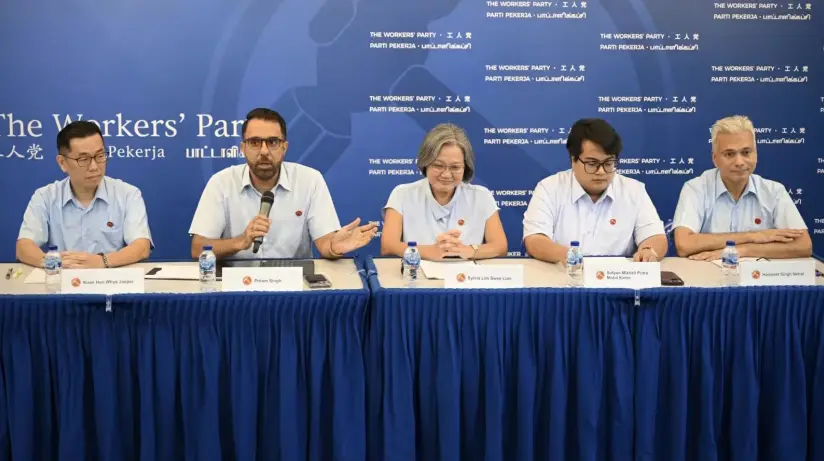工人党无需担忧反对党全军覆没——阿裕尼与后港选区胜券在握
新加坡反对党堡垒的底气与隐忧

根据《海峡时报》专访,工人党新人哈普雷特·辛格(Harpreet Singh)近日坦言,不愿被“空降”至“安全选区”。此言如石投湖面,激起涟漪,揭示了工人党对后港和阿裕尼等选区坚如磐石的自信,暗示其内部对这些传统票仓的掌控力。
哈普雷特的表态证实了外界长期的猜测:在人民行动党(PAP)主宰的新加坡政坛,后港选区(自1991年起为工人党根据地)和阿裕尼集选区(2011年夺下)堪称反对党的“铁打营盘”。2020年大选(GE2020)中,工人党在后港赢得61.2%的选票,阿裕尼集选区得票率达59.9%。虽非压倒性胜利,但在人民行动党(上届93席中占83席)的绝对优势下,这份选民忠诚度无疑是一股不容小觑的力量。
然而,工人党秘书长普里坦·辛格(Pritam Singh)却频频警告反对党可能“全军覆没”,正如《亚洲新闻台》今年初报道所述。这番危言耸听的论调,与哈普雷特的乐观表态形成鲜明对比,令人不禁质疑其真实意图。
普里坦的“全军覆没”危言
普里坦在呼吁党内团结时反复提及“全军覆没”的风险,表面上是为激励支持者,防止自满情绪滋生。他将选举塑造成一场生死存亡的较量,意在确保工人党支持者——尤其是在后港与阿裕尼等关键选区——踊跃投票。这种“恐惧动员”在新家坡政坛并不陌生,堪称政治教科书中的经典一招。
然而,这柄双刃剑暗藏风险。哈普雷特对“安全选区”的坦率承认,暗示工人党私下对核心选区的稳固地位信心十足。公开渲染“全军覆没”的危机,难免让敏锐的选民嗅到一丝虚伪的气息。在新加坡这个以务实著称的城邦,选民对政治话术的洞察力不容小觑。若他们察觉工人党夸大风险以操控舆论,这种“公信力货币”本就稀缺的政党恐将陷入信任危机。
更棘手的是,普里坦自身的诚信风波为其言论蒙上阴影。今年早些时候,他因在国会特权委员会(Committee of Privileges)作伪证被判两项罪名成立。案件源于他处理前国会议员拉希莎·汗(Raeesah Khan)2021年在国会谎称陪同性侵受害者报警一事的失当行为。这场风波令普里坦的公信力备受考验,也让他的“全军覆没”论调更显牵强。
“弱势牌”的高风险博弈
普里坦绝非政坛新手。作为律师、国会议员及深耕新加坡政坛多年的老将,他的“全军覆没”论并非出于对后港或阿裕尼选情的真正担忧,而是精心设计的动员策略。在选民冷漠情绪可能滋生的岛国,点燃支持者的危机感是政治动员的入门课。
然而,过犹不及。过度渲染弱势地位,恐有“狼来了”之虞。正如哈普雷特所暗示,若工人党的核心选区稳如泰山,普里坦的末日论调可能适得其反,侵蚀选民信任。在新加坡,选民对政治操作的敏锐嗅觉不容低估。2023年爱德曼调查显示,78%的新加坡人对政府抱有高度信任,这种信任文化使得任何试图操弄民意的行为都可能招致反感。
2025年大选(GE2025)即将来临,工人党应抛弃戏剧化的危机叙事,转而深耕政策与基层。在这个以理性与实干为本的国度,选民更看重政党的实际作为,而非耸人听闻的“全军覆没”呐喊。无论选区是否“安全”,选举的胜负始终取决于扎根选民的真诚努力,而非高调的恐惧营销。
在这个崇尚实质的城邦,空洞的话术终将被务实的行动盖过光芒。

